If the following blog seems familiar, it’s because we first published it a year ago. At that time, remote work was like the “fingers-crossed, let’s hope this works” solution for how we can all get back to being productive. But a funny thing happened on the way to surviving a Pandemic. These tips on how to manage remote workers are relevant! As we hold on loosely through the tail end of this universal challenge, remote work is not only accepted; it’s taking off. Now, it seems that it is here to stay. Granted, we only have a small sample size (baseball term), but over the last six months, we have placed Photo Re-touchers from Chicago with Ad Agencies in Seattle and Project Managers from Grand Rapids with a Wellness Organization in Phoenix. Still not convinced? How about a Print Graphic Designer from Cleveland paired up with a small Agency in Minneapolis or my personal favorite, our candidate from Chicago, creating templates in Microsoft Word for our client in Medford, Oregon. It is not quite like cats and dogs living together, but it’s on that level, and it’s awesome.
Though I am not a licensed Remote Organizational Psychologist, I can tell you with confidence that a successful remote relationship might require patience and flexibility from all parties involved. In many cases, we have gone the extra mile to ensure our clients get the candidate they asked for by providing equipment, software, and coordination as part of our service. If you are still on the fence, a simple 5-minute phone or zoom conversation can make it all happen.
So, let’s say you’re in Timbuktu, and the very best Digital Flugalbinder Designers all live on the Moon…
I’m sure you know, working remotely is not a new concept. Sure, in certain fields like Healthcare or Manufacturing, it’s a tricky proposition. But for companies in the areas of Knowledge and Service, the possibility for remote working does exist. Many companies (smartdept. inc. included) have been taking advantage of some form of work-from-home policy, even well before it was thrust upon us as the “new norm.” Until now, working from home was often considered a privilege and had been used in corporate settings as motivation, or for the advancement of a negotiation. And, even as a replacement for salary.
Experts have been predicting that remote working will become commonplace for half a century now. Heck, in my research for this blog, I came across something I wrote 10 years ago about how to vet a candidate in a remote location properly. You know, voice inflection, speech pattern, pitch and all that.
But, like anything else, remote working (even under the best of circumstances) isn’t without its challenges. Here are five challenges of remote working and how you might find your way through them.
Challenge: Keeping your team focused during a remote meeting.
My Suggestion: Don’t let the “power person” dominate the meeting.
Possible Action: Every person’s input matters! By engaging each of your co-workers during a remote meeting and allow them to share their unique views and insights on the topic at hand, you will begin to problem-solve as a group. Rather than one person giving their opinion and everyone else agreeing or following, the entire team will feel they are adding value to the meeting.
Desired Result: Getting everyone involved will help to establish open channels of communication between you and the team, now and into the future. Additionally, it will help to develop mutual respect among teammates.
Challenge: Continuing to build trust with teammates while working remotely.
My Suggestion: Work towards creating (or maintaining) a Shared Identity and a Shared Understanding. A Shared Identity can be helped along by promoting a sense that we are all in this together, and as a group, we share one common goal. Talk to your team as “we” rather than “I and you.” Gaining a Shared Understanding can help you get to know who your teammates genuinely are (and vice versa) and what they truly value.
Possible Action: Make an effort to learn about your co-workers outside of their work responsibilities. Ask them to give you a tour of their at-home workspace. Try and gain a further understanding of their context. Why do they set up their day the way they do?
Desired Result: Learning a little bit about what makes your teammates tick can help gain trust, give them added confidence, and lead to improved productivity.
Challenge: Getting the most out of introverted co-workers.
My Suggestion: Pay attention to your teammates during a video call, you could be losing introverts by only using video. It’s possible that they may be distracted by the knowledge that they are on camera, and they might be less inclined to join the conversation. Everybody is different!
Possible Action: Turn off the video portion of your meeting.
Desired Result: Not relying on visual cues can help people to focus more on what someone is saying, and eliminating the video may help to put your more introverted workmates in a better position to focus and contribute.
Challenge: Staying focused throughout your workday.
My Suggestion: Avoid the problem of time becoming meaningless by creating a routine at home that includes all of the variables that you would have had during your typical workday. Consider your commute, lunchtime, breaks, and worktime when solving this equation.
Possible Action: Be creative! Exercise or listen to a podcast during the time you would typically be commuting. Set up your unique workspace and make sure it is not in the same place you eat your meals. Use break times to run short errands. Get the most out of your work time, but make sure to have a definitive end to your day.
Desired Result: Your work routine, all be it different, will have structure and some sense of familiarity. Having a definitive start and end time will keep you motivated to work at achieving your usual daily goals, and being creative with your commute and break times might lead to more productive results during the scheduled work time.
Challenge: How to prevent worry from taking over during this unprecedented time.
My Suggestion: Allow yourself to think about things in the past, present, and future tense. Be aware of the difference between worry and rumination. Worry can be an attempt by your mind to problem solve a current issue going on in your life. Rumination is your mind continuously obsessing over that same issue without trying to solve it.
Possible Action: Set aside 15 minutes every day to worry. Focus on thinking about what troubles you during this dedicated time and then move on.
Desired Result: Reminiscing can lead to nostalgia. Nostalgic events generally make you happy, which can lead to motivation. Thinking about the future can be productive, even if those future thoughts include worry. For some, thinking about the future can help motivate us to get through the present. For others, it can make us feel thankful for what we have in the present. Setting aside time for worry can allow you to contemplate and move on.
Of course, there are plenty of other challenges to consider when setting up a home office. Technical issues are right at the top! Slow internet, bad sound quality, or a lack of technical ability might slow you down. But I believe focusing on a few of my top 5 will get you and your team pointed in the right direction and on your way to successfully working remotely.
If you have questions about these tips or what to discuss with other challenges, drop us a line at hello@thesmartdept.com or reach out to us directly. If you’re looking for remote work, check out our jobs page.
By smartdept. inc. Principal, Eric Pairitz

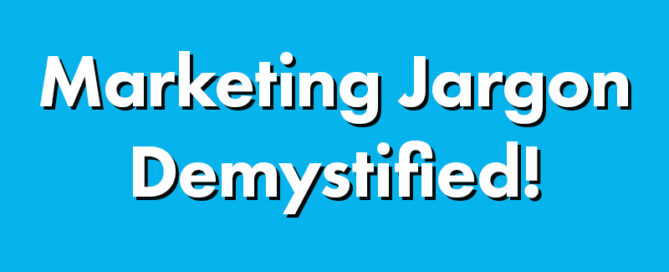

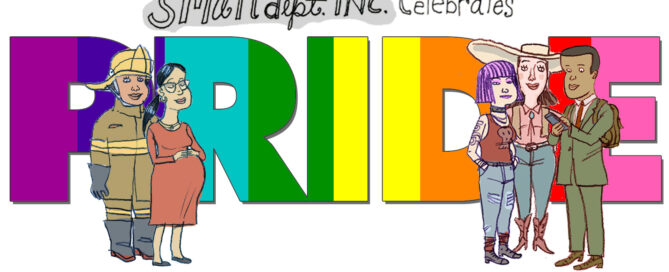
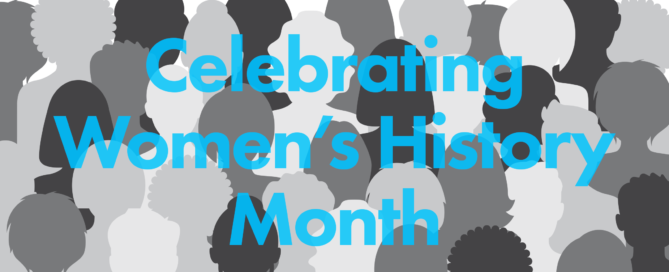
 Amber Rowher, Creative Account Manager at smartdept. says, “The first person that comes to mind is Dolly Parton. Aside from being an incredible artist who has found success across several music genres, she has always challenged societal norms of being a woman. To this day, she continues to speak out and support LGBTQ rights and Black Lives Matter. I think it is because of women like her that others today are given more opportunities they otherwise wouldn’t have.”
Amber Rowher, Creative Account Manager at smartdept. says, “The first person that comes to mind is Dolly Parton. Aside from being an incredible artist who has found success across several music genres, she has always challenged societal norms of being a woman. To this day, she continues to speak out and support LGBTQ rights and Black Lives Matter. I think it is because of women like her that others today are given more opportunities they otherwise wouldn’t have.” Aphra Behn was born on December 14th, 1640. Yup! I had to bust out Peabody’s Way Back Machine for this one. But Aphra Behn’s contributions are substantial! And think of all the travel miles I accumulated during my research. An English playwright, poet, prose writer, and translator from the Restoration era, Aphra was one of the first English women to earn a living from her writing. As a result, she broke cultural barriers and served as a literary role model for later generations of women authors.
Aphra Behn was born on December 14th, 1640. Yup! I had to bust out Peabody’s Way Back Machine for this one. But Aphra Behn’s contributions are substantial! And think of all the travel miles I accumulated during my research. An English playwright, poet, prose writer, and translator from the Restoration era, Aphra was one of the first English women to earn a living from her writing. As a result, she broke cultural barriers and served as a literary role model for later generations of women authors. Yaazzz! Sarah knocks it out of the park with her choice of Joan Ruth Bader Ginsburg. RBG was an American lawyer and jurist who served as an Associate Justice of the Supreme Court of the United States from 1993 until she died in 2020. Ginsburg was the first Jewish woman and the second woman to serve on the Court after Sandra Day O’Connor. President Bill Clinton nominated her for The Supreme Court to fill the seat vacated by retiring Justice Byron White.
Yaazzz! Sarah knocks it out of the park with her choice of Joan Ruth Bader Ginsburg. RBG was an American lawyer and jurist who served as an Associate Justice of the Supreme Court of the United States from 1993 until she died in 2020. Ginsburg was the first Jewish woman and the second woman to serve on the Court after Sandra Day O’Connor. President Bill Clinton nominated her for The Supreme Court to fill the seat vacated by retiring Justice Byron White.


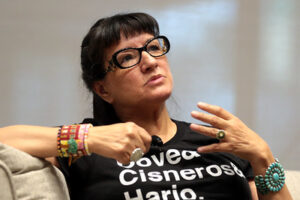 Creative Account Manager, Haley Stowell, enjoys the writing of Sandra Cisneros. Known for work that experiments with literary forms which investigate emerging subject positions, Cisneros, herself, attributes her style to growing up in a context of cultural hybridity and economic inequality. Sandra is the only daughter in a family of six brothers which often made her feel isolated. Additionally, the constant migration of her family between Mexico and the United States made her feel as though she was always straddling two countries, while never really belonging to either culture. As a result, her work deals with the formation of Chicana identity, exploring the challenges of being caught between Mexican and Anglo-American cultures, facing the misogynist attitudes present in both these cultures, and experiencing poverty.
Creative Account Manager, Haley Stowell, enjoys the writing of Sandra Cisneros. Known for work that experiments with literary forms which investigate emerging subject positions, Cisneros, herself, attributes her style to growing up in a context of cultural hybridity and economic inequality. Sandra is the only daughter in a family of six brothers which often made her feel isolated. Additionally, the constant migration of her family between Mexico and the United States made her feel as though she was always straddling two countries, while never really belonging to either culture. As a result, her work deals with the formation of Chicana identity, exploring the challenges of being caught between Mexican and Anglo-American cultures, facing the misogynist attitudes present in both these cultures, and experiencing poverty. Eryn Briscoe, Talent Acquisition Specialist at smartdept., admires the work of Mexican Painter, Frida Kahlo. Frida is known for her many portraits, self-portraits, and works inspired by the nature and artifacts of Mexico. Born to a German father and a mestiza mother, Kahlo spent most of her childhood and adult life at La Casa Azul, her family home in Cayoacán. Inspired by the country’s popular culture, she employed a naïve
Eryn Briscoe, Talent Acquisition Specialist at smartdept., admires the work of Mexican Painter, Frida Kahlo. Frida is known for her many portraits, self-portraits, and works inspired by the nature and artifacts of Mexico. Born to a German father and a mestiza mother, Kahlo spent most of her childhood and adult life at La Casa Azul, her family home in Cayoacán. Inspired by the country’s popular culture, she employed a naïve 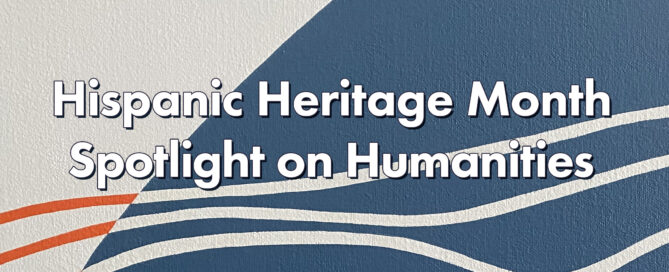
 Creative Account Manager, Morgan Gorecki, would like you to take some time to learn about Sylvia Rivera. Born on July 2, 1951, this Latina trailblazer was a Venezuelan-Puerto Rican trans woman who pioneered LGBT activism, fighting for trans rights. Raised in New York City, Sylvia was abandoned by her birth father and became an orphan after her mother died by suicide. Living on the streets before her 11th birthday, Rivera was forced to work as a child prostitute before she was taken in by a local community of drag queens who gave her the name Sylvia. Together she and Marsha P Johnson (who allegedly was the first person who threw a brick in the
Creative Account Manager, Morgan Gorecki, would like you to take some time to learn about Sylvia Rivera. Born on July 2, 1951, this Latina trailblazer was a Venezuelan-Puerto Rican trans woman who pioneered LGBT activism, fighting for trans rights. Raised in New York City, Sylvia was abandoned by her birth father and became an orphan after her mother died by suicide. Living on the streets before her 11th birthday, Rivera was forced to work as a child prostitute before she was taken in by a local community of drag queens who gave her the name Sylvia. Together she and Marsha P Johnson (who allegedly was the first person who threw a brick in the 



 while playing winter ball in Puerto Rico. He had just finished his rookie campaign when, on Dec. 31, 1972, he was among a handful of ballplayers helping to load the small plane in San Juan with food, clothing, and medical supplies.
while playing winter ball in Puerto Rico. He had just finished his rookie campaign when, on Dec. 31, 1972, he was among a handful of ballplayers helping to load the small plane in San Juan with food, clothing, and medical supplies.







